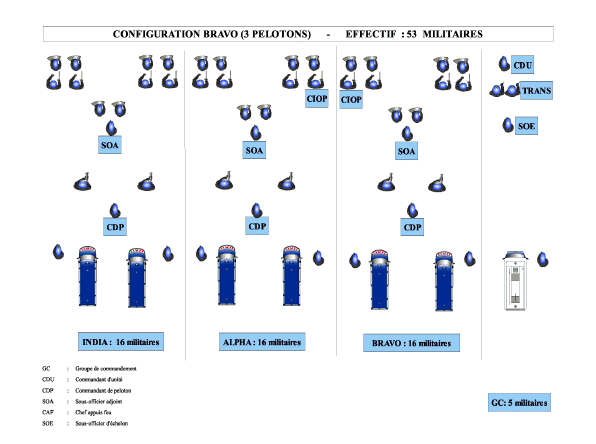
Advertisement

![]() by Gallia- » Wed Aug 23, 2017 10:39 am
by Gallia- » Wed Aug 23, 2017 10:39 am

![]() by DnalweN acilbupeR » Wed Aug 23, 2017 4:39 pm
by DnalweN acilbupeR » Wed Aug 23, 2017 4:39 pm
Gallia- wrote:State capitalism is the most superior system anyway. Lacks the inherent failures of free trade (i.e. being exploited by billionaire Americans, Indians, and Chinese who ship all your most advanced technology (and educated people!) back to their homelands, never to return), the inherent failures of total command economies (i.e. unpredictability and volatility leading to goods shortages and resource hoarding) and has the independent MIC that growing global empires crave. Or, well, that anyone craves TBH.
The Emerald Dawn wrote:I award you no points, and have sent people to make sure your parents refrain from further breeding.
Lyttenburgh wrote:all this is a damning enough evidence to proove you of being an edgy butthurt 'murican teenager with the sole agenda of prooving to the uncaring bitch Web, that "You Have A Point!"
Lyttenburgh wrote:Either that, or, you were gang-raped by commi-nazi russian Spetznaz kill team, who then painted all walls in your house in hammer and sickles, and then viped their asses with the stars and stripes banner in your yard. That's the only logical explanation.

![]() by Taihei Tengoku » Wed Aug 23, 2017 5:32 pm
by Taihei Tengoku » Wed Aug 23, 2017 5:32 pm

![]() by Austrasien » Wed Aug 23, 2017 7:02 pm
by Austrasien » Wed Aug 23, 2017 7:02 pm
Gallia- wrote:State capitalism is the most superior system anyway. Lacks the inherent failures of free trade (i.e. being exploited by billionaire Americans, Indians, and Chinese who ship all your most advanced technology (and educated people!) back to their homelands, never to return), the inherent failures of total command economies (i.e. unpredictability and volatility leading to goods shortages and resource hoarding) and has the independent MIC that growing global empires crave. Or, well, that anyone craves TBH.
...
While in theory free trade is a two way street, it doesn't seem to be much benefit for the United States, since the PRC simply doesn't view its economy as anything less than a weapon of war to destroy its enemies.

![]() by Gallia- » Wed Aug 23, 2017 7:22 pm
by Gallia- » Wed Aug 23, 2017 7:22 pm
Austrasien wrote:one has to go all the way back to the 1st millennium AD to find the real point of divergence.
Austrasien wrote:Freedom is China

![]() by The Macabees » Wed Aug 23, 2017 7:58 pm
by The Macabees » Wed Aug 23, 2017 7:58 pm
Gallia- wrote:Much like how Thailand isn't very important to the world despite manufacturing most computer hard disks, Silicon Valley will increasingly become less important to the world despite inventing new transistors, because the United States itself will be unable to manufacture these transistors. Then Silicon Valley will move to Beijing or Shanghai.

![]() by Gallia- » Wed Aug 23, 2017 8:12 pm
by Gallia- » Wed Aug 23, 2017 8:12 pm

![]() by The Macabees » Wed Aug 23, 2017 8:21 pm
by The Macabees » Wed Aug 23, 2017 8:21 pm

![]() by The Macabees » Wed Aug 23, 2017 8:23 pm
by The Macabees » Wed Aug 23, 2017 8:23 pm

![]() by Gallia- » Wed Aug 23, 2017 8:41 pm
by Gallia- » Wed Aug 23, 2017 8:41 pm
The Macabees wrote:There will always be such thing as low-skill labor in the U.S. It's just that the nature of what is defined to be low-skill will change.
The Macabees wrote:Anyways, the great thing about a lot of the high-valued software that's made is that it helps introduce relatively low-skill workers into the industry. With no degree, you can make $30,000/yr. as a coder and not actually knowing much coding, except for a bit of html and maybe some css. The job will teach you, because those skills are in such high demand that a lot of companies have to train from scratch nowadays.
It's expensive to train people to code. They have high-value software that basically builds the website for you, which allows small companies to hire relatively low-skill labor and pay them at bottom-of-high-skilled-labor-pay-rates.
From that job, if you work hard, build your skills, and learn -- you learn php --, you can jump to $45,000-60,000/yr.
The Macabees wrote:All thanks to page making software.
Google ads are becoming more and more automated. It doesn't make the pay-per-click specialist irrelevant. It helps low-skill people to join that labor market. These guys are in such high demand that you'll be lucky to get one for less than $50k/yr. Smaller companies are willing to train into the position, and they feed into higher paying opportunities.
The digital labor market is growing and will continue to become easier to break into.

![]() by The Macabees » Wed Aug 23, 2017 9:37 pm
by The Macabees » Wed Aug 23, 2017 9:37 pm

![]() by Gallia- » Wed Aug 23, 2017 9:41 pm
by Gallia- » Wed Aug 23, 2017 9:41 pm
The Macabees wrote:As someone who works in the industry, nothing you say about it is remotely correct.

The Macabees wrote:Also, btw, the nature of low- and high-skill labor has been changing throughout human history.
The Macabees wrote:The high-skill labor that made Aristotle famous is what disgruntled, unemployed, armchair, low-skill college grads argue about on the internet now.



![]() by Averland-Jorland » Thu Aug 24, 2017 10:23 am
by Averland-Jorland » Thu Aug 24, 2017 10:23 am
The remainder of the posts on the thread are too off-topic to my article, so I'm only going to reply to this one.Taihei Tengoku wrote:Averland-Jorland wrote:http://iiwiki.com/wiki/Economy_of_Averland-Jorland
Discuss.
The trade and currency and history sections are currently closed as I am in no region yet.
Economic dynamism and state ownership are mutually exclusive since the 1930s, and even then you had to do it over a pile of corpses. Mao tried in the 50s and got a pile of corpses but no industry. So-called "success stories" of central planning still allowed for the profit motive and their success was as much in spite of dirigisme as it was because of it (see: Japan and MITI). However, I may be a bit biased so here is a series of articles on Soviet economic history if you'd like to read

![]() by DnalweN acilbupeR » Fri Aug 25, 2017 10:04 am
by DnalweN acilbupeR » Fri Aug 25, 2017 10:04 am

GC : Groupe de commandement
CDU : Commandant d’unité
CDP : Commandant de peloton
SOA : Sous-officier adjoint
CAF : Chef appuis feu
SOE : Sous-officier d’échelon
CIOP : Cellule image ordre public

GC : Groupe de commandement
CDU : Commandant d’unité
CDP : Commandant de peloton
SOA : Sous-officier adjoint
CAF : Chef appuis feu
SOE : Sous-officier d’échelon
The Emerald Dawn wrote:I award you no points, and have sent people to make sure your parents refrain from further breeding.
Lyttenburgh wrote:all this is a damning enough evidence to proove you of being an edgy butthurt 'murican teenager with the sole agenda of prooving to the uncaring bitch Web, that "You Have A Point!"
Lyttenburgh wrote:Either that, or, you were gang-raped by commi-nazi russian Spetznaz kill team, who then painted all walls in your house in hammer and sickles, and then viped their asses with the stars and stripes banner in your yard. That's the only logical explanation.

![]() by Welskerland » Fri Aug 25, 2017 4:17 pm
by Welskerland » Fri Aug 25, 2017 4:17 pm

![]() by Kazarogkai » Fri Aug 25, 2017 5:07 pm
by Kazarogkai » Fri Aug 25, 2017 5:07 pm
Welskerland wrote:How might a diarchy arise?

![]() by Welskerland » Fri Aug 25, 2017 6:42 pm
by Welskerland » Fri Aug 25, 2017 6:42 pm
Kazarogkai wrote:Welskerland wrote:How might a diarchy arise?
Wasn't that the case with Sparta with it's two kings. One functioned as junior while the other was senior in practice but still. Plus Rome with it's two consuls and arguably the semi presidential system in it's self encodes this with the president focused exclusively on foreign policy while the prime minister focuses on domestic policy.
This question reminds me of something I wanted to ask. Imagine you have a country like the united states, constitution and all. Just like in the usa it has two houses of congress, the senate and the representatives. My question is rather than having a presidential system could some type of semi presidential system work under such a system? My reasoning is they were worried the president would be too strong and trusted congress a bit more as such the decided to divide the executive into two officers: The Consul and the President. The president is head of state and commander in chief and handles foreign policy, they are appointed by the Senate and represent the states. The Consul on the otherhand is head of government and handles domestic policy and is appointed by the representatives and ultimately represent the will of the people. Could something like that actually work in a country and what would be the results if that was the path the USA itself took from the time they made the constitution onward? I imagine no imperial presidency would involve, and maybe there is a slight boost to third parties compared to the normal system.

![]() by Averland-Jorland » Sat Aug 26, 2017 12:57 am
by Averland-Jorland » Sat Aug 26, 2017 12:57 am

![]() by Austrasien » Sat Aug 26, 2017 3:07 am
by Austrasien » Sat Aug 26, 2017 3:07 am
Welskerland wrote:How might a diarchy arise?

![]() by Welskerland » Sat Aug 26, 2017 6:26 am
by Welskerland » Sat Aug 26, 2017 6:26 am
Austrasien wrote:Welskerland wrote:How might a diarchy arise?
Be Rome? Be Sparta?
The one-man executive is mostly a holdover from feudalism. Europeans were fixated with the idea there needed to be someone who "embodied" the state at the turn of the 19th century because they still had not completely shaken off the feudal norm that states were in some sense the personal property of their ruler. And because modern Republican governance was codified in this period it became the new norm everywhere. Collective heads of state were not particularly uncommon in classical antiquity, which preceded Germanic feudalism and so did not carry all the baggage.

![]() by Austrasien » Sat Aug 26, 2017 8:51 am
by Austrasien » Sat Aug 26, 2017 8:51 am

![]() by Iltica » Sat Aug 26, 2017 12:54 pm
by Iltica » Sat Aug 26, 2017 12:54 pm

![]() by -AlEmAnNiA- » Sat Aug 26, 2017 1:05 pm
by -AlEmAnNiA- » Sat Aug 26, 2017 1:05 pm

![]() by NeuPolska » Sat Aug 26, 2017 1:10 pm
by NeuPolska » Sat Aug 26, 2017 1:10 pm
Iltica wrote:Field-of-study-irrelevent history class won't shut up about how great meritocracy is and got me thinking. Is there any historically plausible way it could have existed into present day? And if it did, what would the test criteria be in a secular society? Most of the real world examples have them being scholars of religious texts it seems.
Kar-Esseria wrote:Who is that and are they female because if not then they can go make love to their hand.
Impaled Nazarene wrote:Go home Polska wins NS.
United Mongol Hordes wrote:Polska isn't exactly the nicest guy in the world
Impaled Nazarene wrote:Hurd you miss the point more than Polska misses Poland.
Rhodesialund wrote:when you have Charlie ten feet away or something operating operationally.
Nirvash Type TheEND wrote:Gayla is living in 1985 but these guys are already in 1916

![]() by Taihei Tengoku » Sat Aug 26, 2017 1:28 pm
by Taihei Tengoku » Sat Aug 26, 2017 1:28 pm
Advertisement
Return to Factbooks and National Information
Users browsing this forum: Cantuariensis, National Paranormal Investigation Bureau, Nova Solaris, Vive Salem
Advertisement